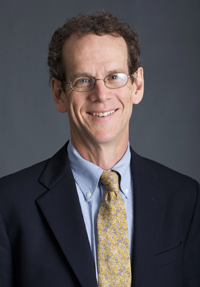- Public Policy
- Leadership
- Funding
- News & Events
- About the Center
Back to Top Nav
Back to Top Nav
Back to Top Nav
Back to Top Nav

David Cole, the Hon. George J. Mitchell Professor in Law and Public Policy at Georgetown University Law, has been published widely in law journals and the popular press, authoring or co-authoring several award-winning books on the topics of constitutional law, national security, and criminal justice. He has worked as a staff attorney for the Center for Constitutional Rights from 1985-90, and has continued to litigate as a professor. He has litigated many significant constitutional cases in the Supreme Court, including Texas v. Johnson, and has been involved in many of the nation’s most important cases involving civil liberties and national security. David has received two honorary degrees and numerous awards for his human rights work, including the inaugural 2013 Norman Dorsen Presidential Prize from the ACLU for lifetime commitment to civil liberties.
Before presenting his talk, “Can President Obama End the War on Terror?”, Courtney Wong ’15 sat down with David Cole for a brief interview.
CW: Where is the future of the war on terror headed?
DC: It is very difficult to predict the future so I hesitate to make a prediction, but I think it is significant that President Obama has gone on record about ending the war with Al Qaeda. I think that he would like his legacy to be the president who came into power with three wars (the war in Iraq, Afghanistan and Al Qaeda), and he would like to be able to say that he came out of office as the president who left the US in a peacetime footing. He has taken troops out of Iraq and Afghanistan this year, and he would like to end the war with Al Qaeda. Whether he will actually follow through on that, I hesitate to predict.
CW: Do you think that he needs substantial public support to do this?
DC: I think that he needs enough public support so that he isn’t hurt politically, but I don’t think it is a situation where we have to convince him that it is a wise thing to end the war. He has already made it clear that perpetual war and democracy is not a good mix. But I think that he will get attacked if he declares the war over and people think that we are no longer defending ourselves. There will always be people out there who will threaten the US, but it doesn’t mean that we have to be in perpetual warfare. There are other ways to respond and keep ourselves secure that don’t involve armed conflict.
CW: As result of security leaks such as those from Snowden, will the government become more transparent in the future?
DC: The government has already been forced to become more transparent. Snowden leaked some information, so the government responded by disclosing other secretive information about the program because they want to give a fuller picture to get people to understand what they are doing isn’t as pernicious as it appears. This has been a wake up call. In a way, we have been sleepwalking about giving up our privacy, and Snowden has woken us up about the importance about transparency. Whether you think the NSA is doing right or wrong, we should still have a broader discussion about it. There is a greater understanding about the push for transparency.
CW: This is more of a fun question – you wrote an article in the Washington Post about your decision to ban laptops in the classroom. How have your students reacted to this rule?
DC: Well, they’ve revolted, refused to come to class [laughs]…it actually has been smooth sailing. At the time of the op-ed, I was the only professor at the law school to ban laptops in the classroom. And today, half of the professors have instituted that rule. Many of my students have said it has helped their learning in the classroom. Some object because they want to take neater notes, but I accommodate that by designating a “laptop note-taker” for each class whose notes will be available to all of the other students. I also record my lectures so if you miss anything, you can go back to the recording.
The classroom is more alive and the discussions are more engaging without the laptops. That is certainly my experience at the front of the room, but it is also the experience of students at the back of the room. So it’s worked out.